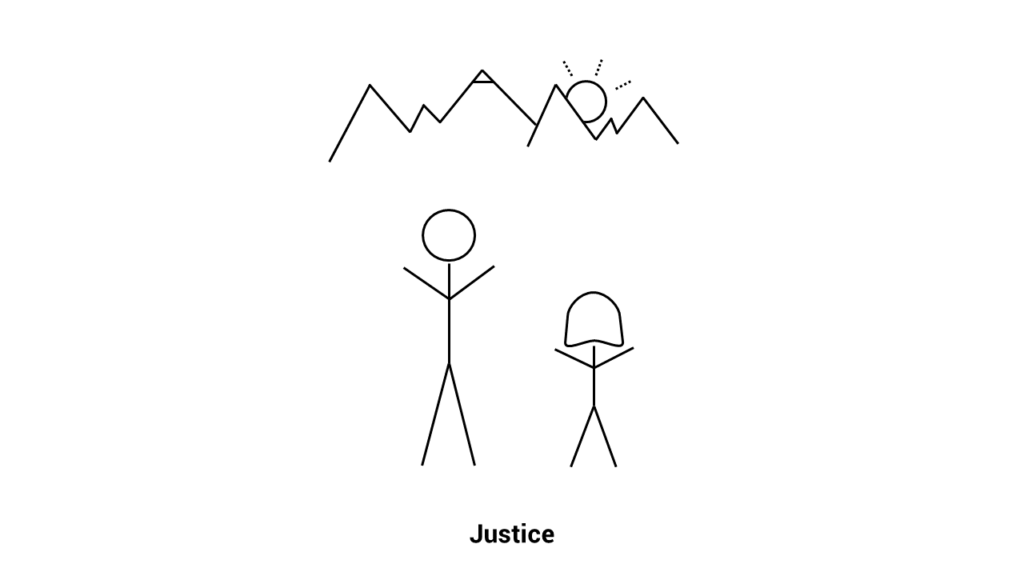Gender equity is the process of being fair to women and men according to their respective needs. To ensure fairness, strategies and measures are needed to compensate for women’s historical and social disadvantages that prevent women and men from otherwise operating on a level playing field. The picture demonstrates the comparison of gender equity with ‘equality’ (where it has been assumed that everyone benefits equally from the same support).
Gender equity leads to actual gender equality. Actual gender equality means equal outcomes for men and women; equal enjoyment by women and men of goods, opportunities, resources and rewards. Gender justice is the ideal end point, and can be achieved by removing barriers to opportunities and resources through addressing the root causes of gender inequality.
Where gender inequality exists, it is generally women who are excluded or disadvantaged in relation to decision-making and access to economic and social resources. Therefore, the empowerment of women is key in achieving gender equality, with a focus on identifying and redressing power imbalances and ensuring that women have more autonomy to manage their own lives.
In order to foster meaningful change through WEE, it is important to describe some of the steps in which this change can occur:


- Gender sensitive means that there is an awareness of different roles, responsibilities and inequalities. This is necessary to start addressing the barriers to gender equality that hinder women’s economic empowerment.
- Gender positive means actively considering the barriers that women face and putting in the necessary effort to ensure that the respective needs of men and women are met for both to participate and benefit. This approach builds on gender sensitivity and focuses on gender equity.
- Gender transformative means that systemic change can occur through the WEE initiative. Gender transformative programs or initiatives challenge existing gender roles, responsibilities and unequal power relations, thereby addressing root causes of gender inequality, towards gender justice.